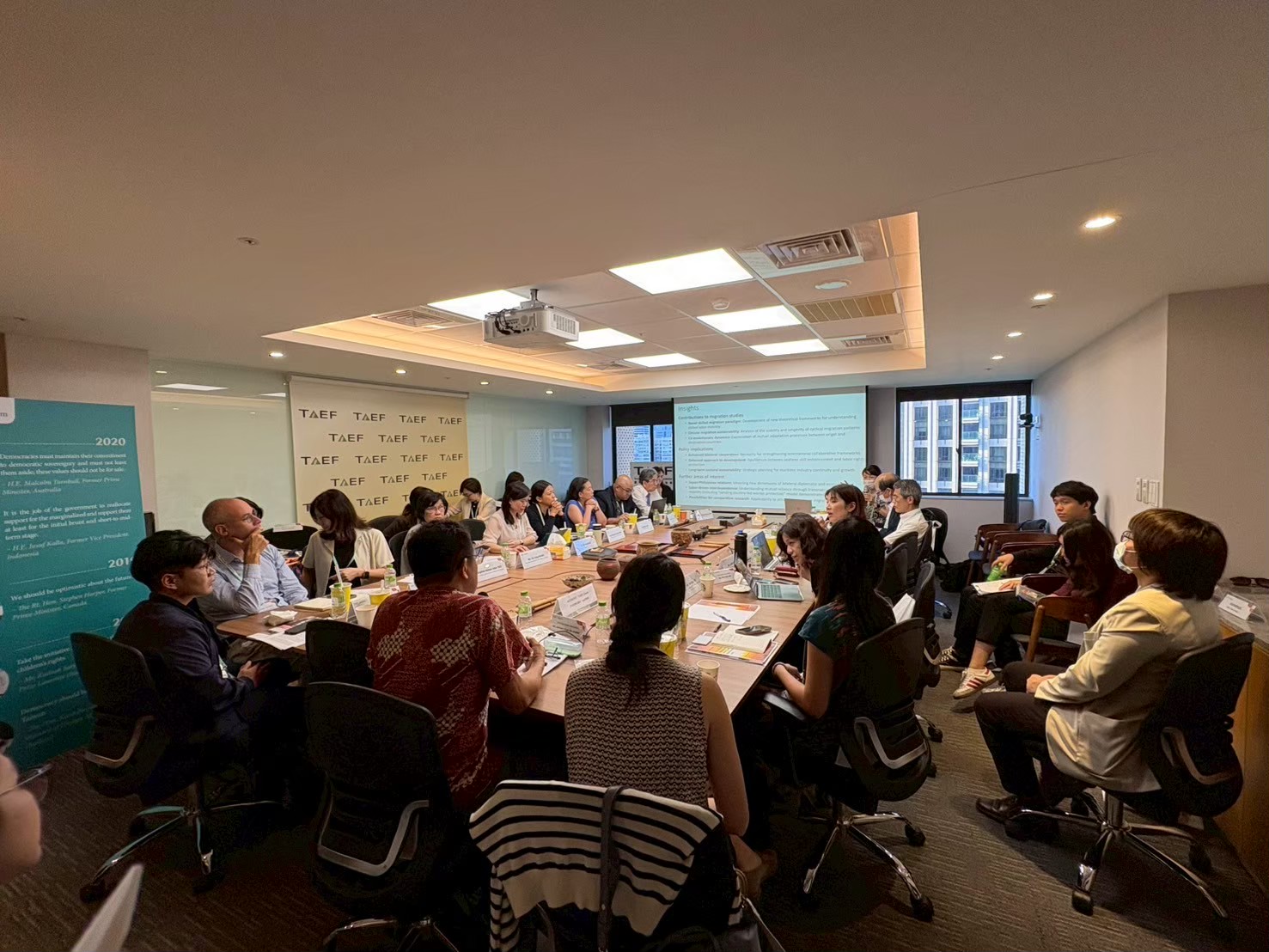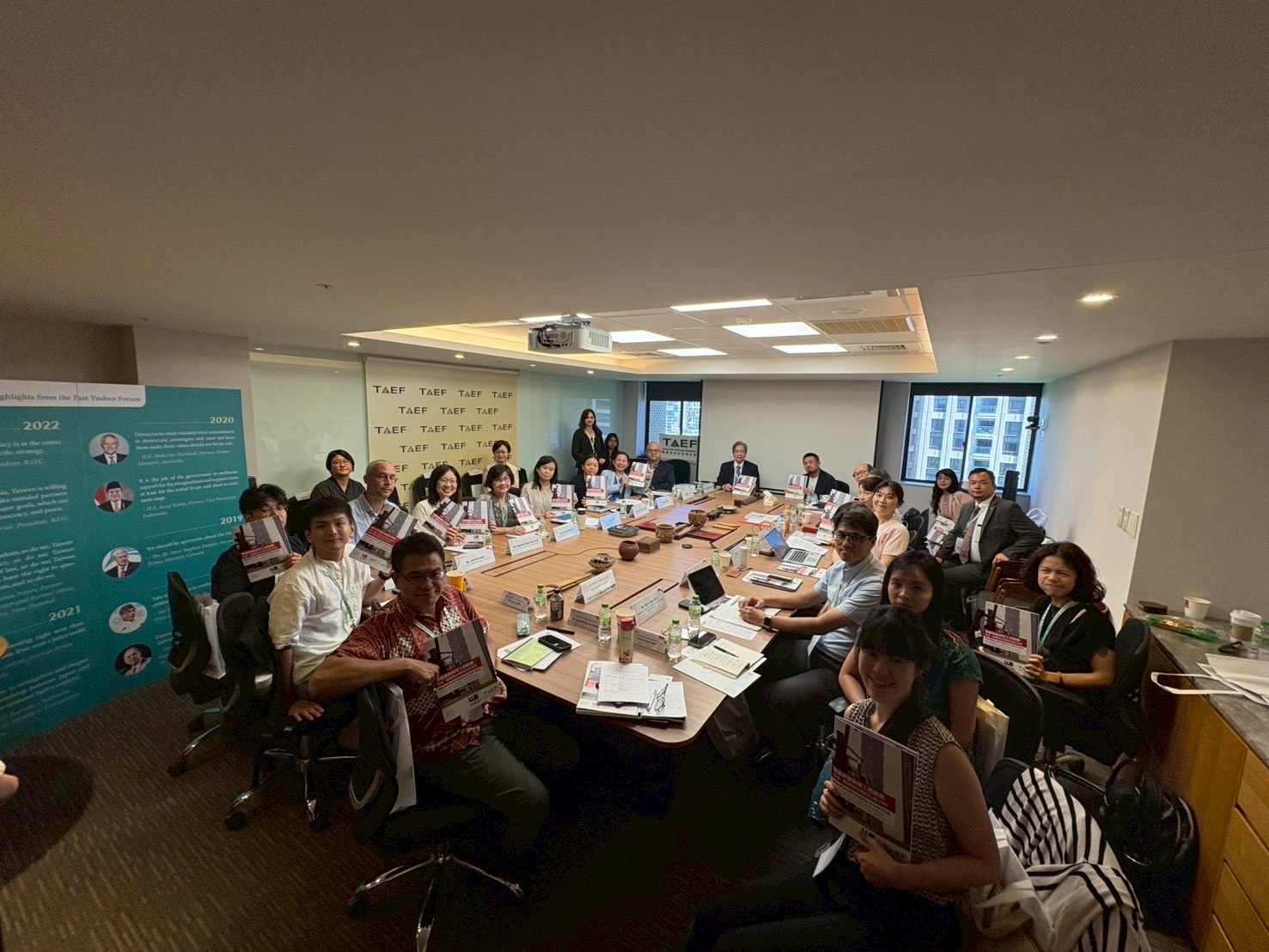
The Taiwan-Asia Exchange Foundation (TAEF) and the Institute of Developing Economies–JETRO (IDE-JETRO) convened the 2025 TAEF–IDE Joint Symposium, “Assessing and Comparing Migrant Workers Policy in East Asia: Taiwan, Japan, and South Korea,” at the TAEF office in Taipei on August 22. Policymakers, academics, civil society, and international experts gathered to examine migrant worker policies in the region and to identify concrete reform priorities, with particular emphasis on Taiwan’s system.
Participants reached emerging consensus on several key directions: abolishing Taiwan’s worker-paid monthly service fees, moving toward the Employer Pays Principle (EPP) in recruitment, integrating migrant labor policy with long-term care (LTC) financing, improving direct hiring mechanisms, and using a human security lens to guide policy and enforcement.
Think Tanks as “Do Tanks”: Opening Remarks
In his opening remarks, TAEF Chairman Dr. Hsin-Huang Michael Hsiao welcomed participants to what he described as “a cozy gathering” meant to foster candid discussion on sensitive issues. He emphasized TAEF’s role as not only a think tank but “a do tank,” noting, “We not only think, write, and publish, but we also want to do something.” Reviewing TAEF–IDE collaboration since 2019, he highlighted joint publications and stressed the importance of continued cooperation with MOL and the NHRC, calling them “the actual agents for change,” and urging participants to be “active actors, not a passive audience.”
Speaking for IDE-JETRO, Senior Research Fellow Dr. Yukihito Sato underscored the value of continuity and mutual learning in the partnership. “This platform has become an essential venue for deepening dialogue on the future of migrant worker policies in East Asia,” he said, noting shared demographic pressures in Japan and Taiwan and observing that “to explore good policies is our common challenge to both countries.” He emphasized that Japanese experts were eager “to learn from Taiwanese presentations” as part of the region’s collective policy advancement.
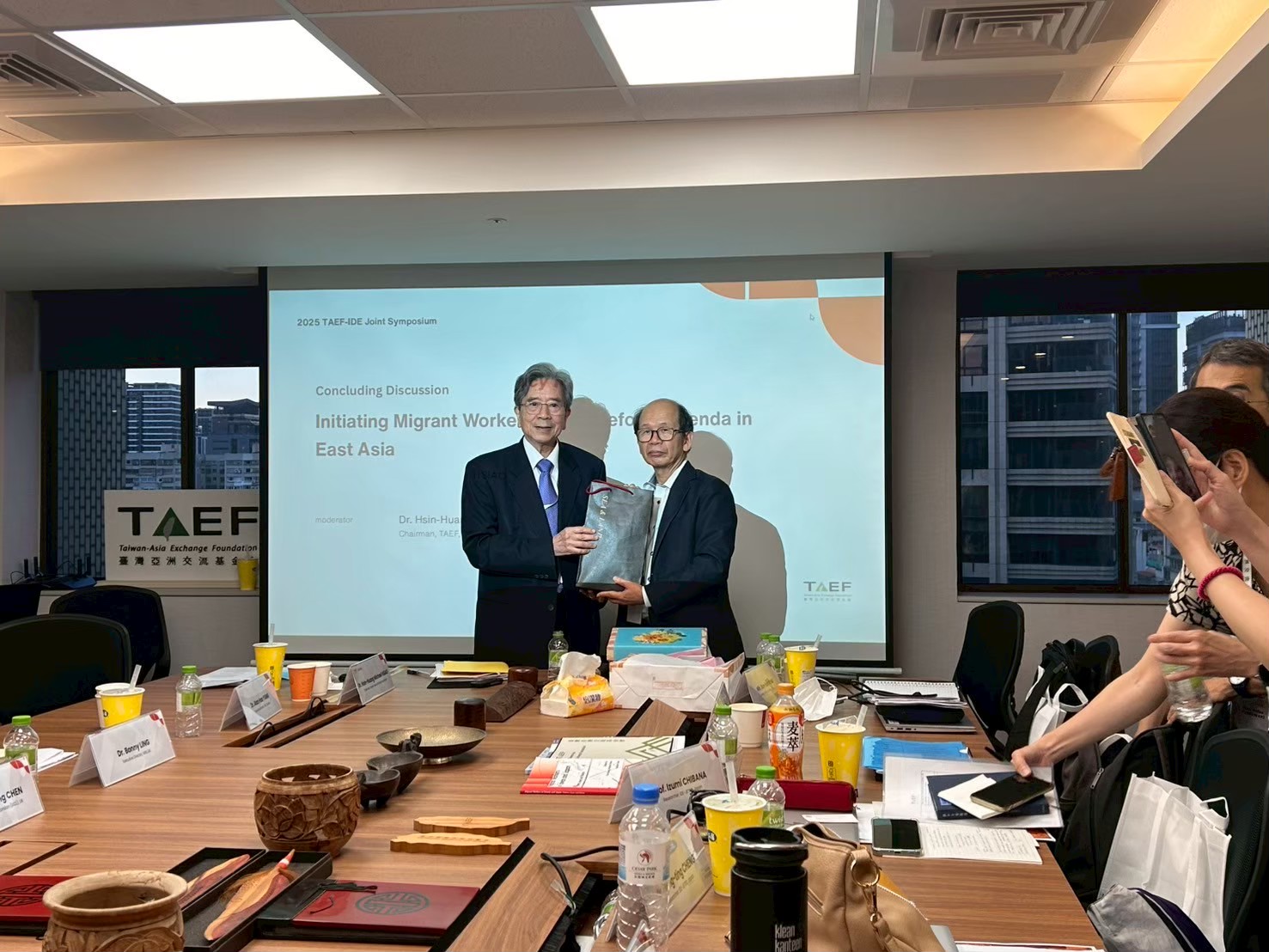
Keynote: Taiwan at a “Path-Seeking” Moment for Reform
In his keynote, Minister of Labor Sun-Han Hung described migrant worker policy as “a longstanding and deeply rooted issue,” noting that as Minister he now has “more room to act,” but reforms must protect “system-wide stability.” He highlighted growing labor pressure—“some call it a labor shortage”—as an opportunity to advance rights-based reforms, particularly in long-term care where families and caregivers often face a “zero-sum tension.” To ease this, he stressed that “government resources must step in,” outlining plans to better link LTC services with caregiver arrangements and expand community-based options in 2025. On recruitment, he reiterated that “recruitment fees must not be accepted,” calling for a one-stop bilingual direct-hire system to reduce dependence on brokers. Describing the current moment as a “path-seeking stage,” he cautioned that reform “cannot jump from point A to point B,” and reminded participants: “Employers may say they need labor power, but what arrives are people.”
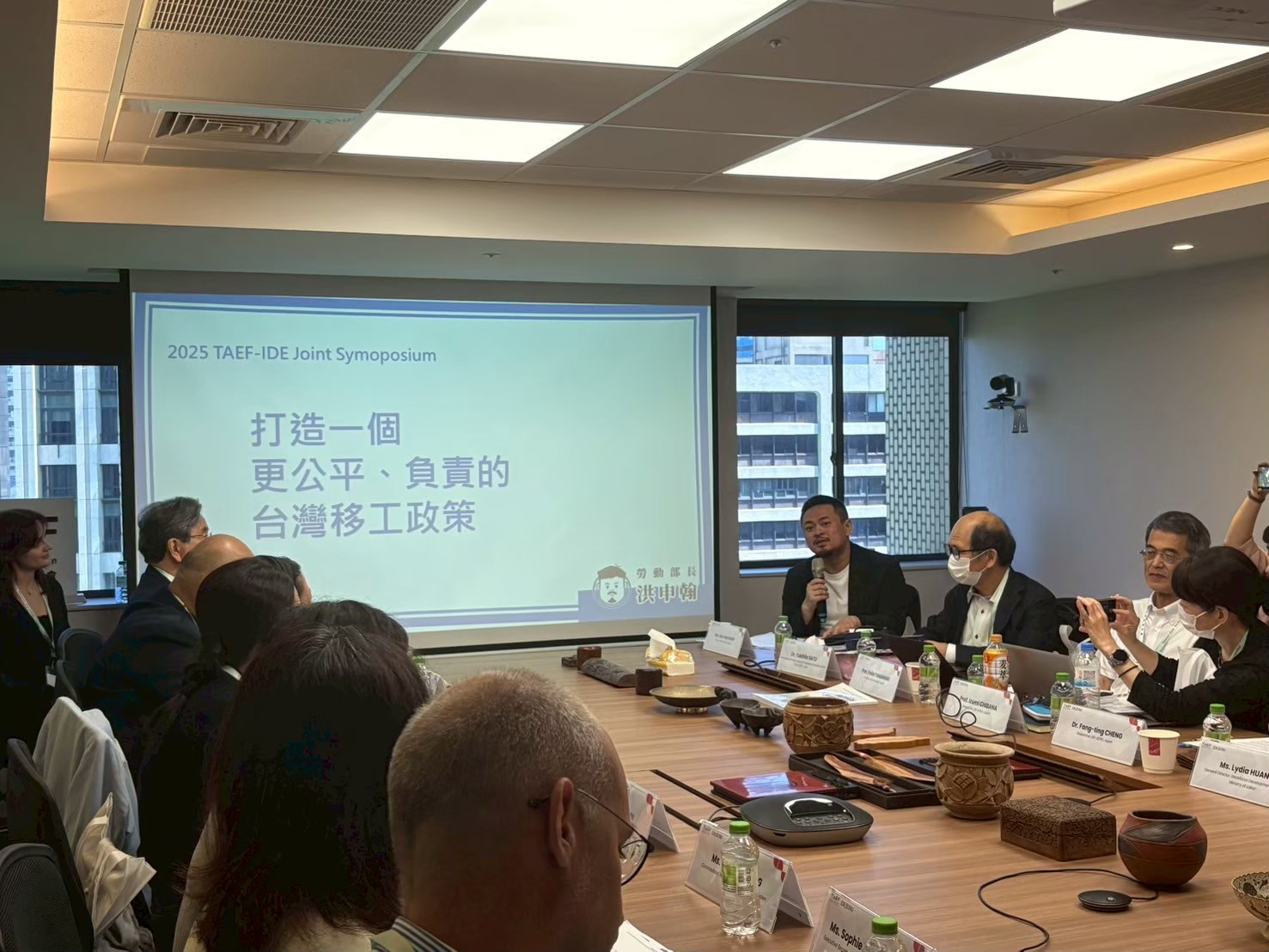
From Research to Advocacy: “Migration with Dignity” and Human Security
Presenting findings from Migration with Dignity in East Asia, Executive Director Dr. Bonny Ling from Work Better Innovation argued that reform should begin with recruitment costs, calling Taiwan’s current service-fee model “an urgent anomaly” and emphasizing that “no worker should pay for the job.” She warned that debt-financed recruitment creates situations where “abuse has to be really bad before workers ask for help,” and urged a phased approach that starts domestically and later builds regional alignment with Japan and Korea. Renee Te-Jung Chen from Work Better Innovation highlighted migration as a “financial ecosystem,” stressing that Taiwan must fix the “leaky pipe” created by fees at recruitment, during employment, and in remittances. She underscored that migration itself is soft power: “Every time workers talk to their families and communities, that is soft power.” Associate Professor Dr. Yu-Fan Chiu from the School of Law, National Yang Ming Chiao Tung University added that recruitment issues must be considered together with working conditions, warning that Taiwan still lacks “a legal definition of forced labor,” and urging the adoption of ILO standards so that abuses are treated “not as misunderstandings, but as violations.”
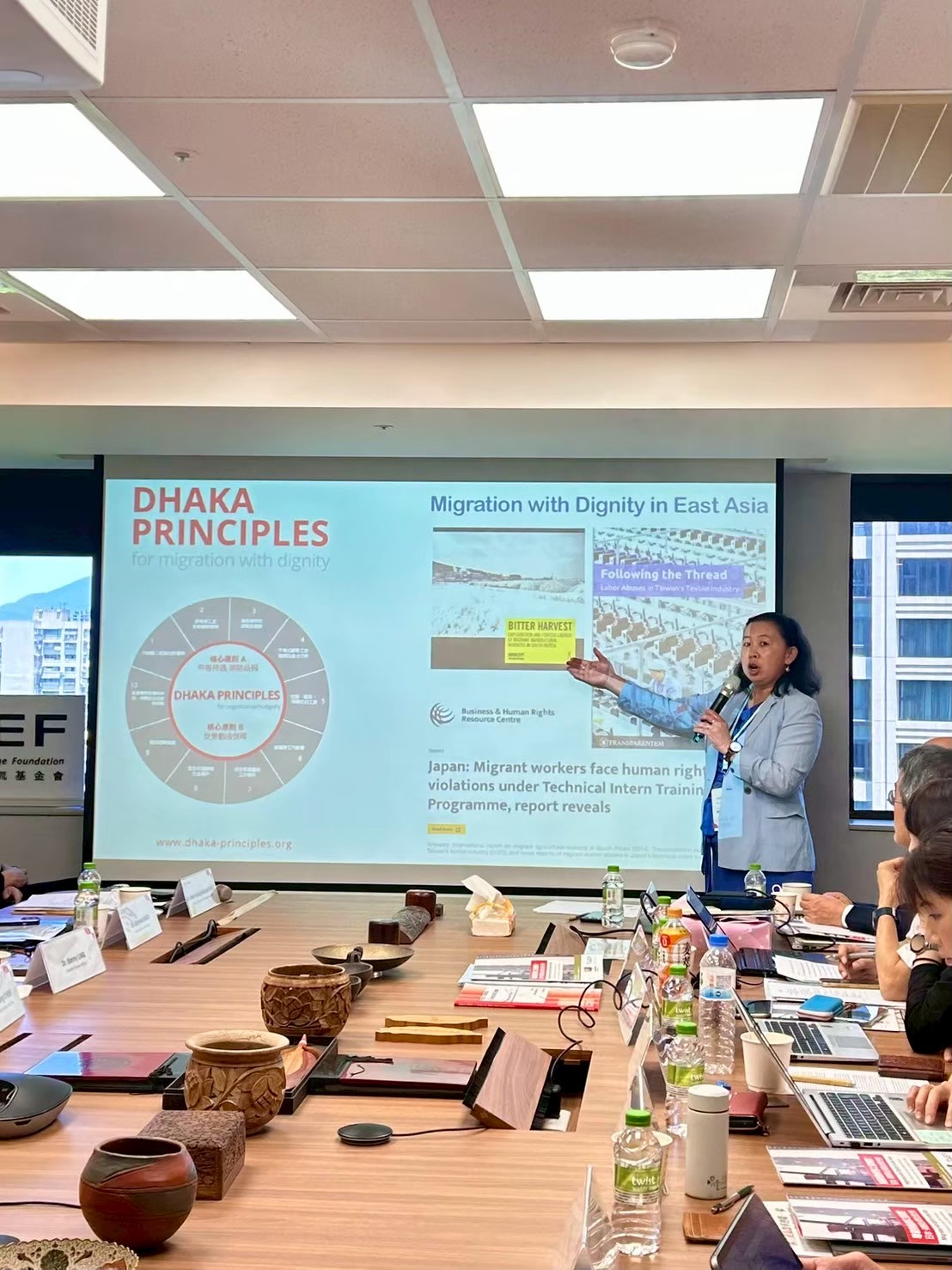
Japan’s Experience: Local Innovation and New Standards
In discussing Japan’s model, Prof. Keizo Yamawaki, Professor at the Meiji University, Japan, explained that immigration has moved “from the margins to the center” of Japan’s policy debate, with local governments driving innovation in integration. He pointed to Tabunka Kyōsei as a long-running framework for coexistence, but noted that Japan still lacks “a coherent national system” and must balance local flexibility with national leadership. Tools like Yasashii Nihongo help newcomers, but he warned it is “not a panacea” and must be paired with proper interpretation and language training. Prof. Izumi Chibana, Researcher at the IDE-JETRO Japan, highlighted merchant shipping as a sector shaped by global labor standards, describing Filipino seafarers as “indispensable partners” for Japan’s shipping industry. She called the 2024 Magna Carta of Filipino Seafarers “a historic turning point” that will raise expectations on employers and reshape “the global benchmark for maritime labor protection.”
Toward a Reform Agenda: Concrete Proposals and Next Steps
In the final session, moderated by Dr. Hsin-Huang Michael Hsiao, participants consolidated discussions into a focused reform agenda. Key priorities included abolishing worker-paid monthly service fees, moving fully toward the Employer Pays Principle, and building a “one-stop, multilingual direct-hire and transfer” system to reduce reliance on brokers. Participants also called for aligning long-term care financing with caregiver policy, ending the misuse of “intern” and “student” categories, improving job mobility, and strengthening financial safety through secure remittance channels and anti-fraud measures. A cross-ministerial roundtable was proposed to coordinate timelines and launch early pilots in sectors such as electronics and long-term care. As Dr. Bonny Ling noted, “Japan, Korea, and Taiwan are friends, but also competitors in the same labor market,” and early movement on fair recruitment would boost both worker protection and regional credibility. Closing the symposium, Dr. Hsiao emphasized that the dialogue is “a starting point, not an end point,” affirming TAEF’s commitment to a regional agenda of “migration with dignity.”
The symposium brought together 30 representatives from across government, human rights institutions, civil society, business, and media, including the Ministry of Labor, National Immigration Agency, National Human Rights Commission, leading NGOs such as the Harmony Home Foundation Taiwan, the Garden of Hope Foundation, the Responsible Business Alliance, Amnesty International Taiwan, and opinion leaders from CommonWealth Magazine. Their participation underscored the event’s role as a cross-sector platform for advancing migrant worker policy reform and strengthening collaborative action.
